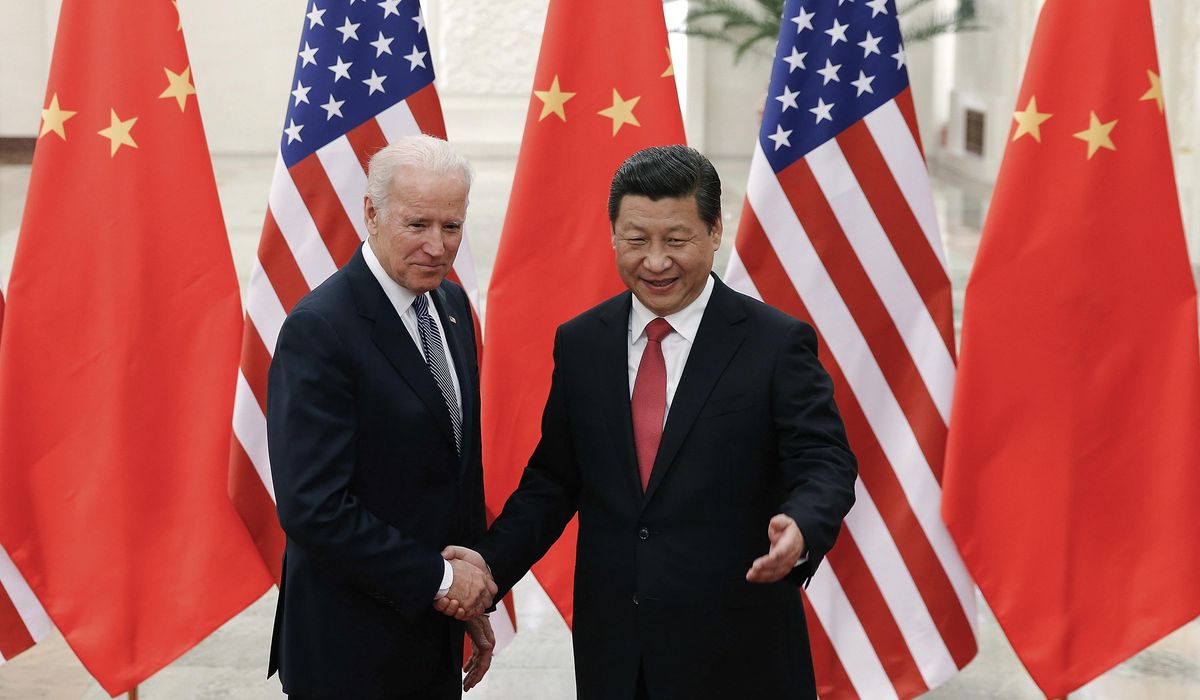
The Department of Homeland Security has dropped plans for a federal rule that would have required American schools and universities to disclose agreements with Chinese government-funded Confucius Institutes on their campuses.
A Federal Register notice said the rule, first proposed Dec. 31 at the end of the Trump administration, was withdrawn Jan. 26 without comment.
Confucius Institutes and Confucius Schools operate as education centers that ostensibly teach Chinese culture and language. Federal authorities, however, say the institutes are stalking horses for covert Chinese government influence efforts.
Sen. Marco Rubio, Florida Republican, said the institutes engage in covert influence operations designed to sway American public opinion and teach half-truths about China. Under pressure from the Trump administration, scores of the institutes were closed.
Mr. Rubio, vice chairman of the Senate Select Committee on Intelligence, criticized the decision to withdraw the rule. He tweeted that the FBI “has warned about China’s Communist Party using Confucius Institute[s] to infiltrate American schools.”
“But now Biden quietly withdrawn rule proposed by Trump admin to require schools & universities to disclose their partnerships with these agents of Chinese govt influence,” he stated.
Rep. Michael T. McCaul of Texas, the ranking Republican on the House Foreign Affairs Committee, said the institutes pose security threats to the education system.
“By quietly backing away from the proposed rule without consulting Congress, the Biden administration is sending a concerning signal about its scrutiny of [Chinese] influence in academia, and telling academic institutions that they don’t need to be transparent about their ties to China’s regime,” Mr. McCaul said.
“It’s all the more disturbing because the education industry already fails to report billions of dollars of foreign gifts and contracts. I strongly urge the Biden administration to stick to its promises to prioritize the CCP as our main national security challenge, including in the American education system.”
Immigration and Customs Enforcement, the Homeland Security agency that withdrew the order, did not respond to an email request for comment.
FBI Director Christopher Wray said in 2018 that the bureau was monitoring the Confucius Institutes over concerns that they were being used for propaganda and espionage. Some FBI investigations were linked to the institutes, he said.
“We do share concerns about the Confucius Institutes,” he told a Senate hearing. “We’ve been watching that development for a while. It’s just one of many tools that they take advantage of.”
A Chinese government official, Liu Zhongshan, was arrested in October 2019 on federal visa fraud charges related to the recruitment of American technology experts.
The Justice Department criminal complaint in the case revealed that Mr. Liu used a Confucius Institute at a U.S. university as part of the recruitment scheme. It was the first time a federal criminal case was linked to one of the Chinese institutes.
The State Department last year designated the headquarters of the Confucius Institutes in Washington as a foreign mission, a label that recognizes the institutes as entities of the Chinese government. That designation remains in place.
In December, then-Secretary of State Mike Pompeo also spoke out against the institutes and urged universities to shutter the centers.
The more than 100 Confucius Institutes on U.S. campuses contributed to the current “left-leaning” campuses that Mr. Pompeo said “are rife with anti-Americanism and present easy targets for their anti-American messaging.”
The State Department “has made very clear these Confucius Institutes are literally up to no good,” said Mr. Pompeo, noting that many have been recognized as problems and closed.
China’s government has funded American universities to the tune of $1.3 billion since 2013, Mr. Pompeo said.
In July, then-Attorney General Bill Barr also criticized the activities of Confucius Institutes, noting that they “have been accused of pressuring host universities to silence discussion or cancel events on topics considered controversial by Beijing.”
“Universities must stand up for each other; refuse to let the [Chinese Communist Party] dictate research efforts or suppress diverse voices; support colleagues and students who wish to speak their minds; and consider whether any sacrifice of academic integrity or freedom is worth the price of appeasing the CCP’s demands,” Mr. Barr said.
The proposed rule was recommended in a 2019 report by the Senate Homeland Security and Governmental Affairs Committee in a staff report. The report said the institutes were paying universities and schools hundreds of thousands of dollars to serve as hosts.
